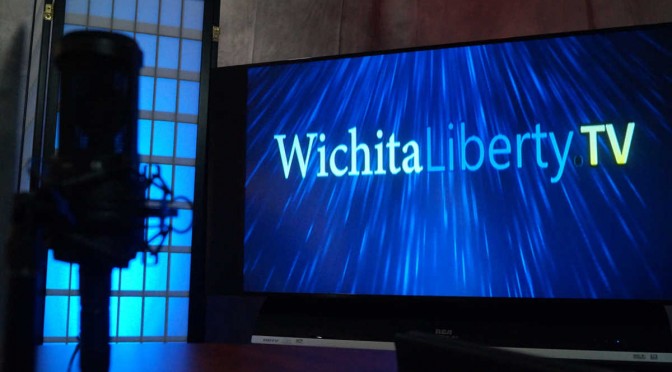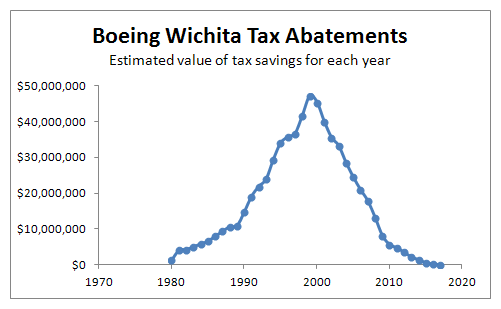Some citizen activists and Wichita city council members believe that a single $500 campaign contribution from a corporation has a corrupting influence. But stacking dozens of the same $500 contributions from executives and spouses of the same corporation? Not a problem.
On December 1, 2015 the Wichita City Council considered an ordinance regarding campaign finance for city elections. A Wichita Eagle article on the topic started with: “A proposed change in city ordinance would allow corporations, labor unions and political action committees to have a greater influence on Wichita politics. For years, city elections have remained insulated from the power of those groups, unlike national and state elections, because Wichita ordinance specifically forbids them from contributing to local campaigns.” 1
The city believed the proposed action was necessary to comply with recent court rulings. Under the proposed ordinance — which was passed by the council — corporations, labor unions, and political action committees would be able to make a single campaign contribution per election cycle of up to $500, the same limit as for individuals.
During the council meeting, citizens testified as to the terrible consequences should the council pass this ordinance. Here are a few excerpts taken from the minutes of the meeting:
- “Citizens United has unleashed Frankenstein monsters purchasing our government with their pocket money.”
- “Stated corruption and conflicts of interest have become institutionalized and what City legal counsel suggests will sell the Council and the City of Wichita to the highest bidder.”
“Stated according to a lengthy report last week, by the Pew Research Center, across party lines people are distrustful and concerned about big money in politics.”
“Stated big money does not donate, it invests and buys democracy. Stated she is asking the City Council to keep big money out of the City Council elections.”
“Allowing big money into City elections is a concern.”
“Stated the City has been independent and has a freedom from influence that the state and the nation do not enjoy. Stated you will then be under the thumb of people who want to control you. which is scary to those of them who are highly opposed to this situation and hopes that the Council will think of them and how this vote will benefit them.”
“Stated the League [of Women Voters] has studied campaign finance over the years at all three levels. Stated they are currently involved in the study of money and politics and their position currently reads that they want to improve the methods of financing political campaigns in order to ensure the public’s right to know and combat corruption and undue influence, which is their biggest concern.”
In its reporting after the meeting, the Eagle reported more concern: 2
But those who oppose the measure said they were concerned about opening up local elections to party-affiliated groups like PACs and about transparency since PACs do not have to report their individual donors.
“Individuals should decide elections, not corporations,” Frye said.
Several members of the public spoke against the changes.
“People in the shadows are going to be pulling your strings,” said Russ Pataki.
“It’s very worrisome what big money has done to state and national politics. The city has been independent (of that),” said Lynn Stephan to the council before the vote. “You have a freedom from influence the state and nation don’t enjoy.”
So, people are concerned about the corrupting influence of political campaign donations from corporations and political action committees. Citizens — and the Wichita Eagle — believe that currently the city council is free from this influence.
But the reality of city council campaign financing is different.

2008 and 2009
Executives of Key Construction and their spouses make six contributions to the Lavonta Williams campaign, totaling $3,000.
2010 and 2011
Executives of Key Construction and their spouses make eight contributions to the Carl Brewer campaign, totaling $4,000. Brewer was Wichita mayor running for re-election in 2011.
Executives of Key Construction and their spouses make eight contributions to the Jeff Longwell campaign, totaling $4,000.
2012
The City of Wichita is preparing to build a new airport terminal with a cost of around $100 million. Key Construction and Dondlinger and Sons Construction are two bidders. The contract is controversial. Dondlinger submitted a lower bid than Key, but it was alleged that Dondlinger’s bid did not meet certain requirements.
January 24, 2012
Executives of Key Construction and their spouses make six contributions to the James Clendenin campaign, totaling $3,000.

On this day and the next, executives of Key Construction and their spouses make eight contributions to the Jeff Longwell campaign for Sedgwick County Commission, totaling $4,000. At the time, Longwell was a Wichita city council member.
April 17, 2012
On this day and the next, executives of Key Construction and their spouses make eight contributions to the Lavonta Williams campaign, totaling $4,000.
July 16, 2012
An executive of a Michigan construction company and his wife contribute $1,000 to Longwell’s campaign for county commission. The company, Walbridge, is partnering with Wichita-based Key Construction to bid on the Wichita airport terminal contract.3
July 17, 2012
The Wichita city council votes in favor of Key Construction and Walbridge on a dispute over the airport terminal contract, adding over $2 million to its cost. Brewer, Longwell, Williams, and Clendenin participated in the meeting and voted. City documents state the job of the council this day was to determine whether the staff who made the decision in favor of Key Construction “abused their discretion or improperly applied the law.”4
July 20, 2012
An additional $2,250 in contributions from Walbridge executives to the Jeff Longwell campaign for Sedgwick County Commission campaign is reported.
January 2013
Williams and Clendenin file campaign finance reports for the calendar year 2012. This is the first opportunity to learn of the campaign contributions from Key Construction executives and their spouses during 2012. For Williams, the Key Construction-related contributions were the only contributions received for the year. Clendenin received contributions from Key Construction-related individuals and parties associated with one other company during the year.
Is there a pattern? Yes. Key Construction uses its executives and their spouses to stack individual contributions, thereby bypassing the prohibition on campaign contributions from corporations. This has been going on for some time. It is exactly the type of corrupting influence that citizens are worried about. It has been taking place right under their eyes, if they knew how or cared to look. And Key Construction is not the only company to engage in this practice.
Just to summarize: The Wichita city council was charged to decide whether city officials had “abused their discretion or improperly applied the law.” That sounds almost like a judicial responsibility. How much confidence should we have in the justice of a decision if a majority of the judges have taken multiple campaign contributions from executives (and their spouses) of one of the parties?
In some ways, it is understandable that citizens might not be aware of this campaign contribution stacking. The campaign finance reports that council members file don’t contain the name of contributors’ employers. It takes a bit of investigation to uncover the linkage between contributors and the corporations that employ them. For citizens, that might be considered beyond the call of duty. But we should expect better from organizations like the League of Women Voters.
Certainly there is no excuse for the Wichita Eagle to miss or avoid things like this. Even worse, it is disgraceful that the Eagle would deny the problem, as it did in its November 23 article quoted above.
In summary, some citizen activists — most council members, too — believe that a single $500 campaign contribution from a corporation has a corrupting influence. But stacking dozens of the same $500 contributions from executives and spouses of the same corporation? Not a problem.
Political campaign contributions are a form of speech and should not be regulated. What we need are so-called pay-to-play laws, which regulate the linkage between campaign contributions and council member participation in matters that benefit donors.5
Either that, or we need council members with sufficient character to recognize when they should refrain from voting on a matter.
—
Notes
- Ryan. Kelsey. Wichita City Council considers changes to campaign finance, salaries. Wichita Eagle, November 23, 2015. Available at www.kansas.com/news/politics-government/article45993895.html. ↩
- Ryan, Kelsey. Wichita council votes to change local campaign finance law, raise council salaries. Wichita Eagle, December 1, 2015. Available at www.kansas.com/news/politics-government/article47329045.html. ↩
- Weeks, Bob. Michigan company involved in disputed Wichita airport contract contributes to Jeff Longwell. Voice for Liberty. Available at wichitaliberty.org/wichita-government/michigan-company-involved-in-disputed-wichita-airport-contract-contributes-to-jeff-longwell/. ↩
- Wichita City Council agenda packet for July 17, 2012. ↩
- Weeks, Bob. *Kansas needs pay-to-play laws.” Voice for Liberty. Available at wichitaliberty.org/wichita-government/kansas-needs-pay-to-play-laws/. ↩






 Three years ago from today the Wall Street Journal noted something it thought remarkable: a “voter revolt” in Wichita. Citizens overturned a decision by the
Three years ago from today the Wall Street Journal noted something it thought remarkable: a “voter revolt” in Wichita. Citizens overturned a decision by the 




 In 2008 the Wichita City Council approved a no- and low-interest loan to Bill Warren and his partners.
In 2008 the Wichita City Council approved a no- and low-interest loan to Bill Warren and his partners. 





